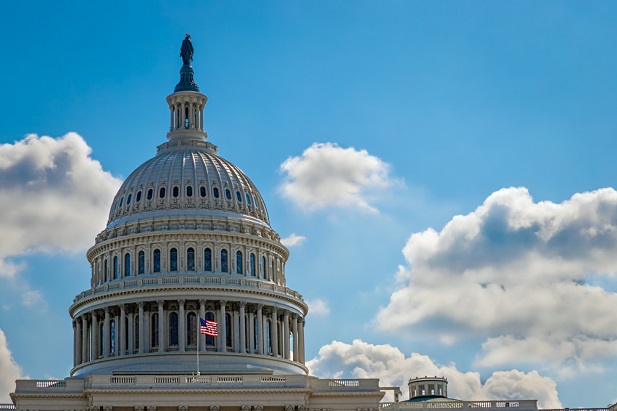 U.S. Capitol. (Source: Shutterstock)
U.S. Capitol. (Source: Shutterstock)
The Senate on Thursday failed to advance the Republican so-called "skinny" economic stimulus bill, leaving an uncertain future for credit union priorities such as liability protection and automatic loan forgiveness for certain Paycheck Protection Program loans.
Sixty votes were needed to open debate on the bill and the motion to proceed received only 52 votes. Now it remains unclear when, or if, congressional leaders and the Trump Administration will reach an agreement on another stimulus bill.
Recommended For You
The House and Senate are scheduled to leave the nation's capital at the end of the month and Congress still has to consider a Continuing Resolution to keep much of the government funded after Sept. 30, the end of the fiscal year.
The $500 billion Senate stimulus legislation was much smaller than the one Senate Majority Leader Mitch McConnell (R-Ky.) proposed earlier this summer. The House passed its $3 trillion coronavirus crisis stimulus legislation in May.
The smaller Senate bill provided some funding for education and health programs but fell far short of Democratic proposals to give economic aid to cash-strapped state and local governments.
The bill would have authorized another round of PPP lending for businesses employing fewer than 300 people. To qualify, the businesses would have had to experience a drop of revenue of at least 35% in the first or second quarter of the year.
The Republican bill also would have simplified the PPP's loan forgiveness process, allowing businesses receiving loans of $150,000 or less to receive loan forgiveness by simply filing a one-page document stating that the loan was used for purposes permitted under the law.
Credit union trade groups had called for automatic loan forgiveness for all loans of $150,000 or less.
The bill also included some liability protection for businesses that have reopened during the pandemic.
The trade groups had pushed for several other provisions they said would help communities recover from the pandemic — ranging from an increase in the credit union Member Business Loan cap to making permanent the emergency Central Liquidity Facility provisions contained in stimulus legislation enacted earlier this year.
McConnell blasted Democrats before Thursday's vote, when it was clear that the bill would not advance. "Democrats have blocked us at every turn," he said on the Senate floor. "Senators who want to move forward will vote 'yes.'"
He made it clear that the Senate bill would allow negotiations on a compromise bill to continue.
However, House Speaker Nancy Pelosi (D-Calif.) told reporters Thursday morning that the bill was unacceptable. "Let's not have a skinny bill if we have a massive problem," she said.
Later, she added, "It's not even a skinny bill. It's an emaciated bill."
If nothing else, the defeated Senate bill may provide ammunition for members of Congress from both parties, as they campaign for reelection.
© Touchpoint Markets, All Rights Reserved. Request academic re-use from www.copyright.com. All other uses, submit a request to [email protected]. For more inforrmation visit Asset & Logo Licensing.






